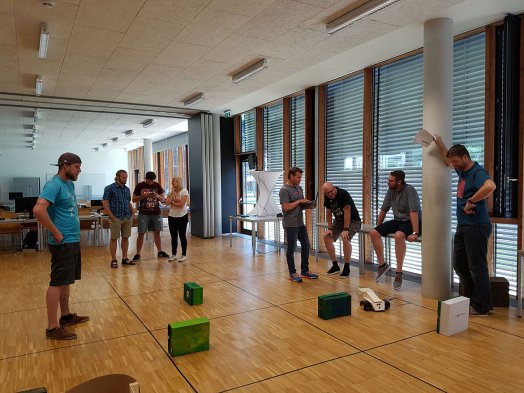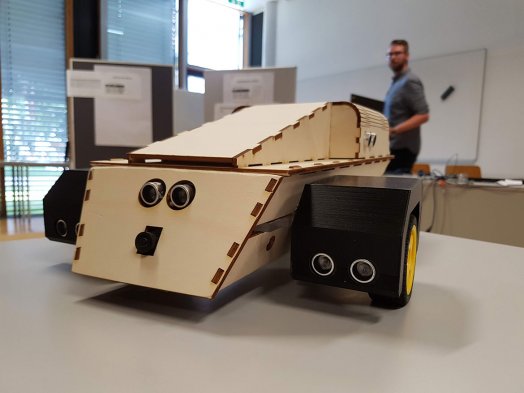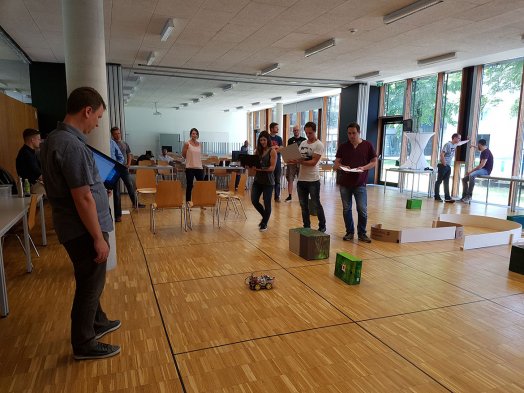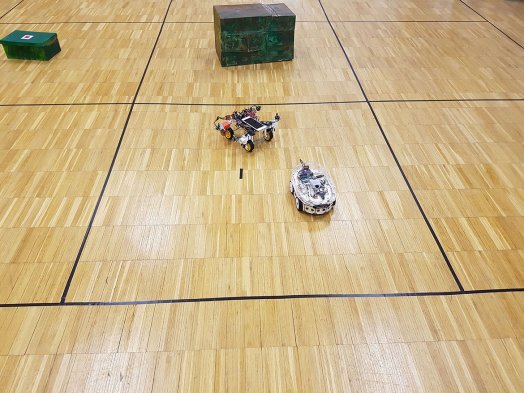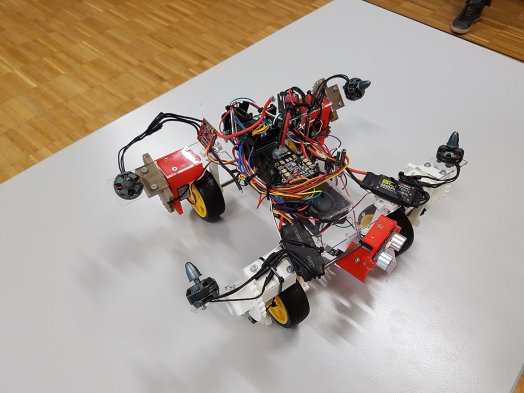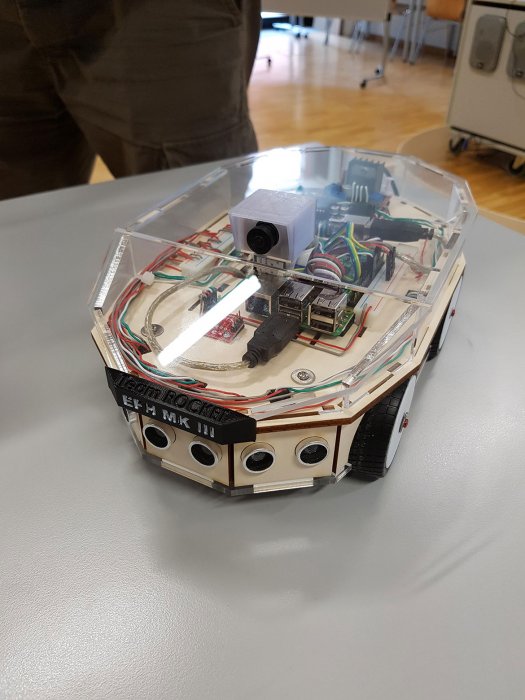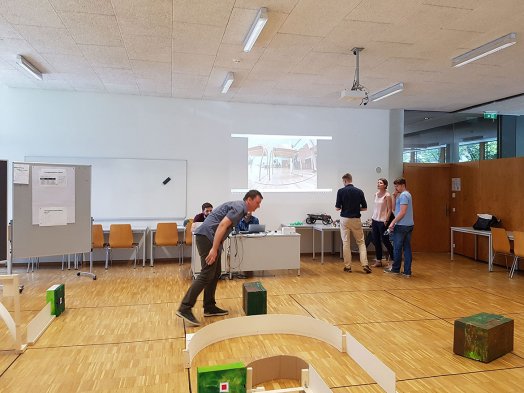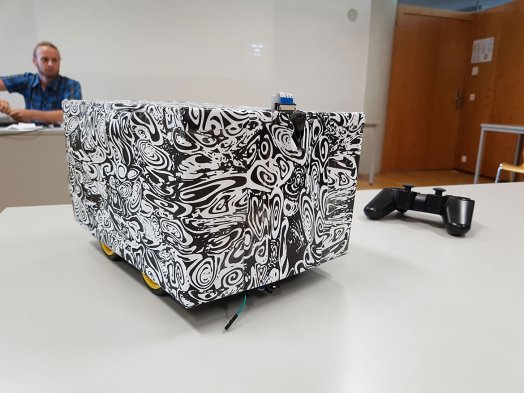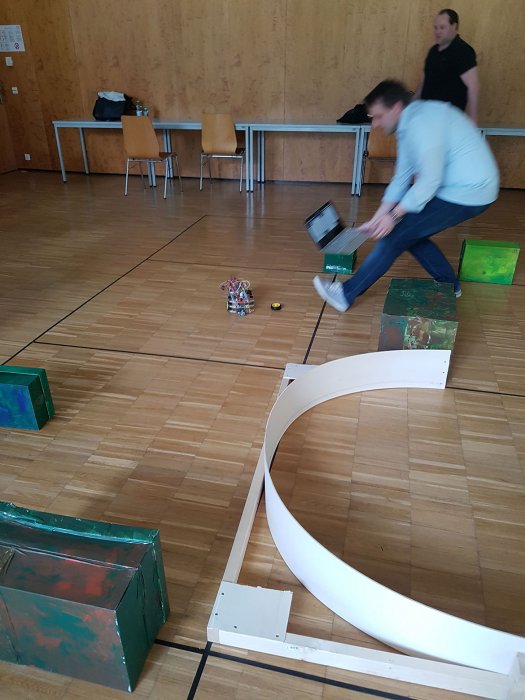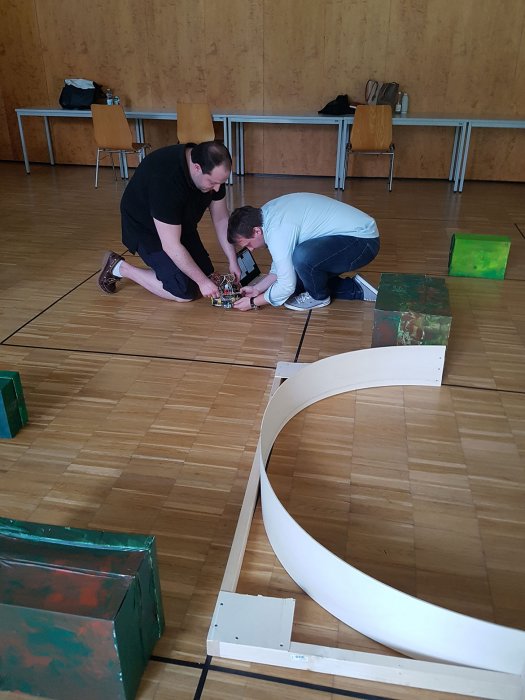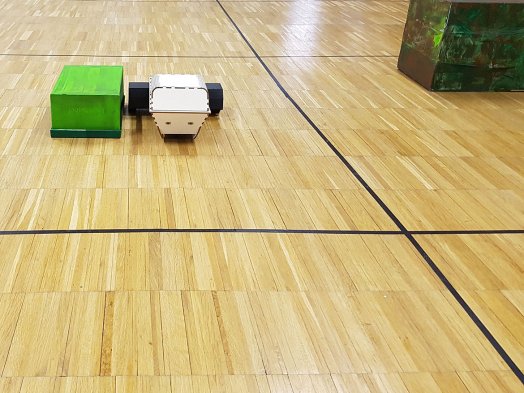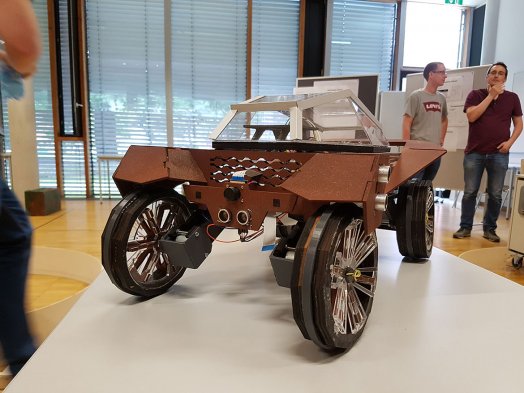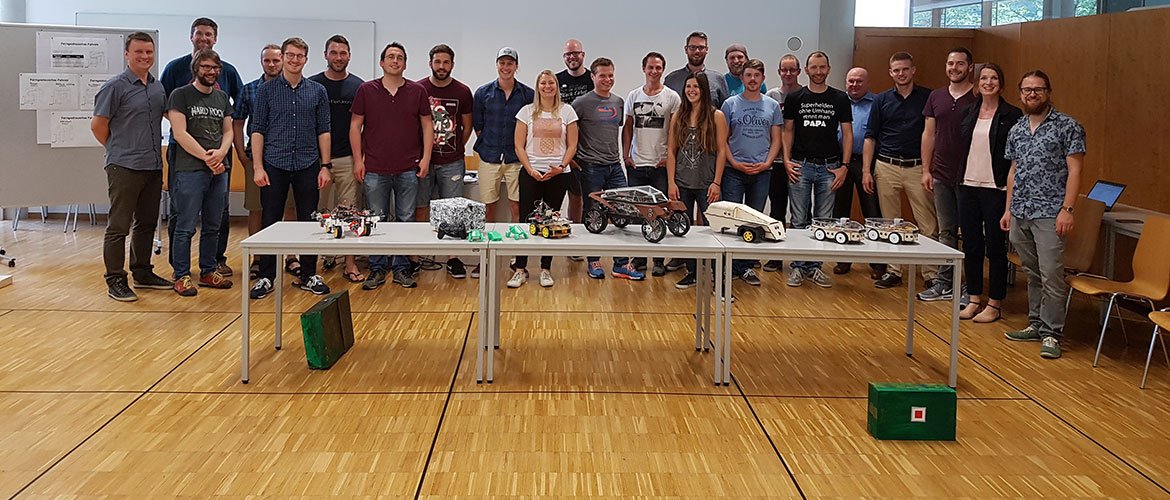
Autonomous driving provides cloud data
In winter semester 2017/18, students of the master degree program Smart Products & Solutions delivered an amazing performance for the Mars Explorer project with great results. Building on this, the lecturers for the summer semester developed a further project that combines aspects from five courses: interaction & product design, concept development, simulation, data transfer and model-based analysis.
Focal point vehicle design
The project combines autonomous driving with the acquisition of environmental data. In addition to the technical challenge of conceptualizing, manufacturing and programming a vehicle, vehicle design was also an essential focal point. For example, Lecturer Dipl.-Ing. (FH) Mara Lindner especially emphasized innovative and market segment-specific designs.
The students brought their vehicles to life according to their designs at the Center for Rapid Innovations, the FabLab of Werkstätte Wattens. Head of the Laboratory Prof. (FH) Dr. Christian Teissl, MBA supported the students in the implementation. During the one-month project runtime, the students were also allowed to use the Center for Rapid Innovations outside of project work.
In the courses Concept Development and Simulation, Prof. (FH) Dr. Djones Lettnin and Dipl.-Ing. Thomas Schmiedinger conveyed method skills and selectively and specifically supported the students in the pursuit of solutions. In the course Model-Based Analysis, Schmiedinger also introduced the concept of the digital twin, i.e. virtual replication of an arbitrary object. This makes it possible to virtually track the status of an object, e.g., a vehicle or machine.
Free ride to the cloud
During the final presentation, the teams presented their vehicles and their concepts for data acquisition, autonomous driving and remote-controlled operation. The vehicles then had to maneuver toward various destinations within a predefined space – in remote-controlled and autonomous driving mode – while continually transmitting measurement data to the data cloud.
Director of Studies Asc. Prof. (FH) Dr. Peter Affenzeller was excited about the results as well as about the execution and implementation of the project: “These experiences impressively demonstrate how project-based learning of complex content can be conveyed in a motivating and interesting manner. Students actively designed and experienced the entire process from the initial idea to the design studies and functional prototypes.”
